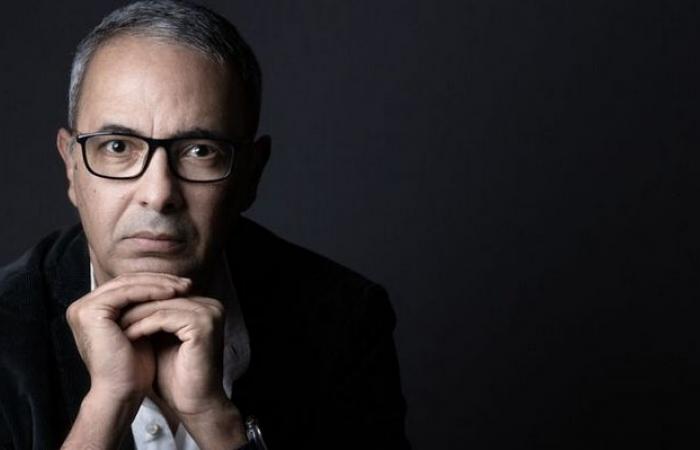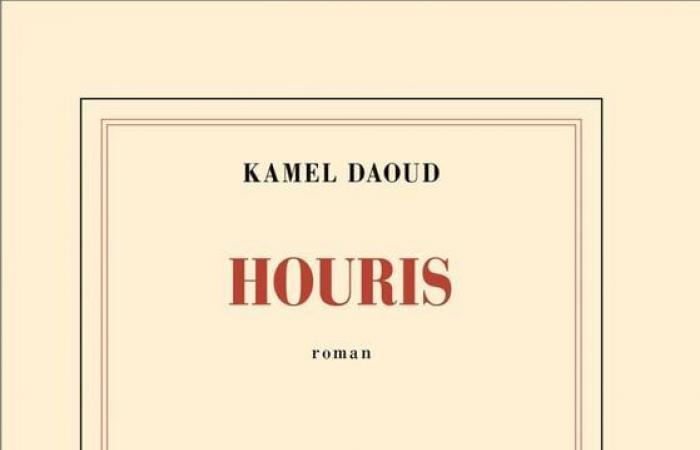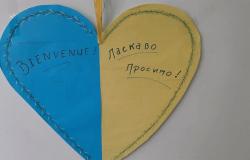While the 27th edition of the Algiers International Book Fair is being held from November 6 to 16, the Gallimard publishing house has been asked not to attend. And for good reason: his flagship book of this literary season defies article no. 46 of the Charter for Peace and National Reconciliation, adopted by referendum in 2005 by the Algerian government under the leadership of President Abdelaziz Bouteflika, after the end of the Algerian civil war (1992-2002). A charter which imprisons “anyone who, through his declarations, writings or any other act, uses or instrumentalizes the wounds of the national tragedy, to undermine the institutions of the democratic and popular Algerian Republic (…)”.
It is with these words that Kamel Daoud, or rather “Aube”, the heroine of Houristhis novel by the Algerian writer – naturalized French in 2020 and exiled in France since 2023 – winner of the 2024 Prix Goncourt as well as the 2024 Landerneau Readers’ Prize and finalist for the Reneaudot. A novel in which, in addition to lifting the veil both on this “black decade” of Algeria – which opposed the army and Islamist groups – and on the condition of women in his country, Kamel Daoud succeeds in the trick of forces us to believe that he is a young woman of 26 years old, pregnant on top of that, to the point of taking us with him in this transition even if it means misunderstanding it ourselves too. But if Hourisnamed after these virgins promised to the Muslim faithful in paradise, was just that…
Those who know how to read will understand when they see the scandal of my eyes and the monstrosity of my smile
Because Aube is not just any woman. She is a survivor. On his neck, a cannula. From ear to ear, a seventeen centimeter “smile”. That of the scar left by the attempted slitting of her throat at the age of five, on the night of December 31, 1999, in the village of Had Chekala, in the province of Relizane, in the northwest of the country. Perpetrated by an Islamist, who did the same – and succeeded – with his older sister and her parents, the scene of Aube’s throat being slit, paradoxically impossible to put down, is truly unbearable. We bring out the book in one hand, the other on our neck. Unbearable, even unspeakable. And it is there, in this prohibition to say things, that everything is at stake for Aube, as much as for Kamel Daoud.
“Women bear the scars of war”
Killed by the blade of a knife twenty-one years earlier, then gagged a few years later by the legislation of Algiers, the almost mute Aube nevertheless reveals herself to be verbose. Driven by the emergency writing of Kamel Daoud, pouring out a kind of overflow – buried perhaps? – since his years as a journalist at Oran Daily during this war, of which he covered the massacres and counted the dead (some 200,000), Aube tells in her heart of hearts, in this body serving as national memory, how she lives her life of silence(s) to the only interlocutor who hears her, and really listens to her: her daughter, in her womb. A being who has not yet been born, but Aube does not want to see her born, because “here is not a place for you, it is a corridor of thorns for a woman to live in this country “.
Read also
In Lebanon in the 80s, a stunningly accurate and topical noir novel
Intertwined are the author’s denunciations against the amnesty granted to the resistance fighters in the 1990s for the “reconciliation” of the nation; against the grandiloquent memory of the Algerian war of independence (1954-1962) and the imposition of forgetting these dark years; against what religion – and men of religion – have done to women. The one who himself renounced the Islamic impregnation of his adolescence, finally taking the opposite approach to the point of being the target of a fatwa from a Salafist imam for comments made on Islam in 2014, takes the risk of losing ourselves and sometimes achieves this in the twists and turns of his thoughts and his struggles.
God made you a whisper so that we will all be silent when you speak
The expected story of the fratricidal war that Algeria chose to ignore – which is reminiscent of a certain Lebanon – is thus replaced by that of the fight for women’s freedom, and vice versa, until so that the reader understands that the two are intrinsic and linked in Dawn. “The one who can tell the story of a war with authenticity and truth is a woman. The war may end for men (…) but women bear the traces of war. They carry in their body the trace of what we want to bury,” declared the writer on France Inter. last August. With HourisKamel Daoud takes us by the throat by reopening the wound of what was left unsaid about the Algerian civil war, and trades his freedom in his country to claim that of women in Algeria and everywhere else.
The cover of the book.
While the 27th edition of the Algiers International Book Fair is being held from November 6 to 16, the Gallimard publishing house has been asked not to attend. And for good reason: his flagship book of this literary season defies article no. 46 of the Charter for Peace and National Reconciliation, adopted by referendum in 2005 by the Algerian government under the leadership…
- -






